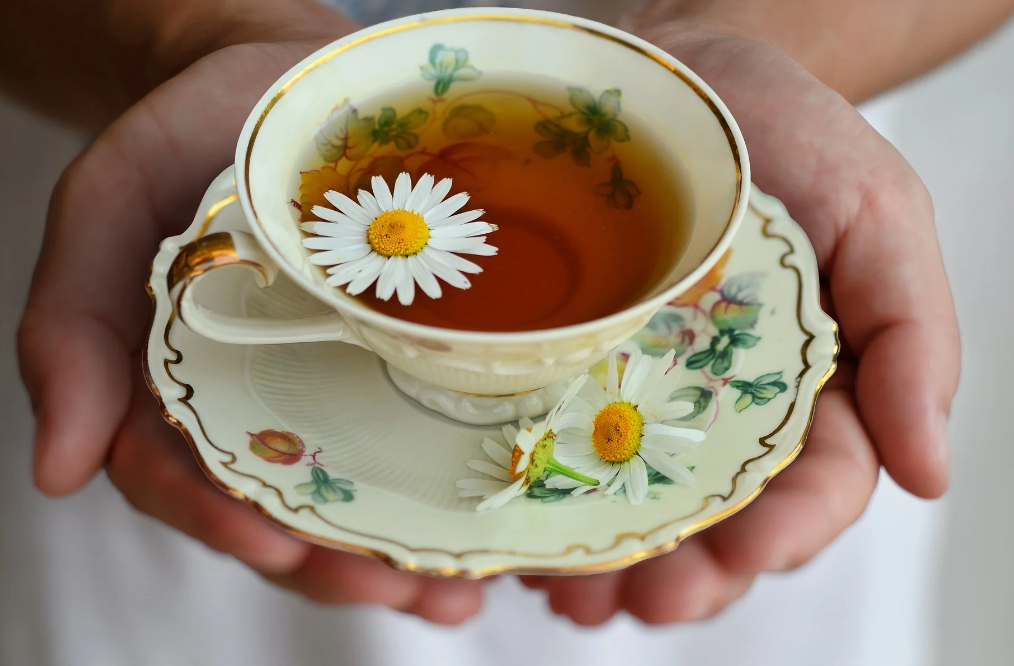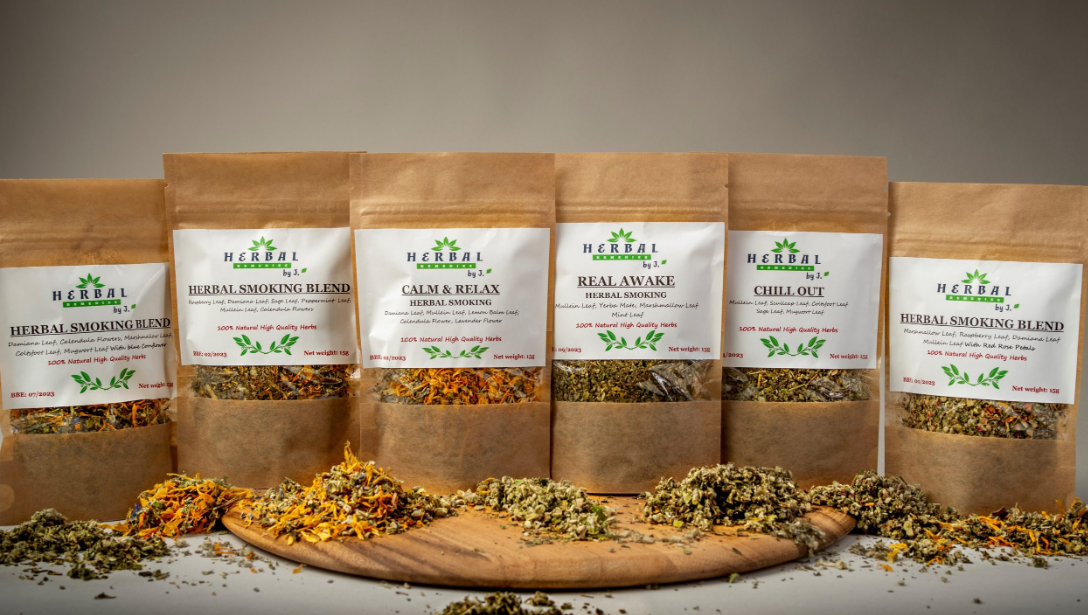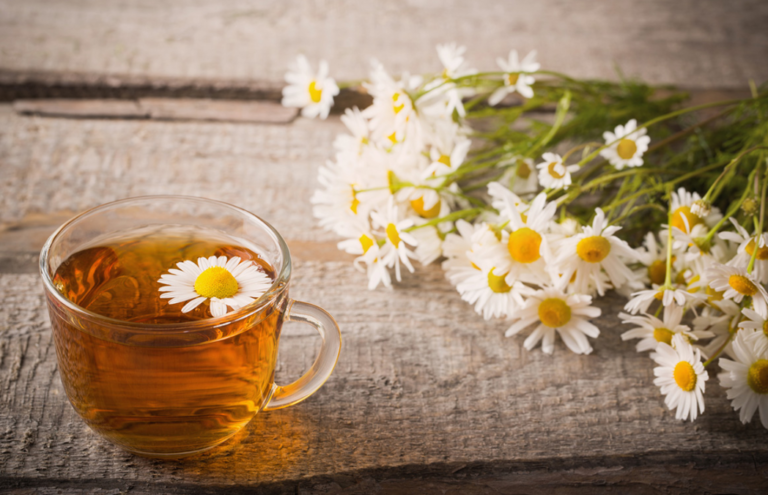You might have enjoyed a soothing cup of chamomile tea to unwind after a long day, but have you ever wondered if this calming herbal infusion can be smoked?
While it’s not a widely practiced method, some individuals do explore the world of herbal smoking blends, often incorporating chamomile as a key ingredient.
In this article, we’ll delve into the intriguing realm of smoking chamomile tea, examining its potential benefits, risks, and considerations you should keep in mind before indulging.
A Short Answer
Yes, you can smoke chamomile tea, but it’s not a widely recommended or safe practice. Smoking any substance, including chamomile, can potentially harm your lung health.
What is Chamomile Tea?
Before we dive into the smoking aspect, let’s first understand what chamomile tea is. Chamomile (Matricaria chamomilla or Chamaemelum nobile) is a daisy-like plant that has been used for centuries in traditional medicine.
Its dried flowers are commonly brewed into a fragrant and soothing herbal tea, renowned for its calming properties.

The primary compound responsible for chamomile’s relaxing effects is apigenin, which has mild sedative qualities.
When consumed as a tea, chamomile is often used to alleviate stress, promote relaxation, and improve sleep quality. It’s a popular choice for those seeking a natural remedy to unwind after a hectic day.
Can You Smoke Chamomile Tea?
While chamomile tea is typically consumed as a beverage, some individuals have explored the idea of smoking it as part of herbal smoking blends.
These blends are created by combining dried chamomile flowers with other herbs, such as mullein, lavender, or mint. The resulting mixture is then smoked using herbal cigarettes or pipes.
However, it’s important to note that smoking chamomile tea is not a widespread practice, and there is limited research on its effects and potential risks compared to studies on consuming chamomile as a beverage.
As with any form of smoking, there are concerns regarding the impact on lung health and overall well-being.

Potential Benefits of Smoking Chamomile Tea
While the research is limited, some proponents of smoking chamomile tea suggest that it may offer the following benefits:
Relaxation and Stress Relief
-
- Chamomile’s natural sedative properties may contribute to a sense of relaxation and calmness when smoked.
- Some individuals find the act of smoking itself to be a ritualistic and calming experience.
Improved Sleep Quality
-
- As chamomile is known for its sleep-promoting effects when consumed as a tea, some believe that smoking it could potentially have a similar impact on sleep quality.
Anti-Inflammatory Effects
-
- Chamomile contains compounds with anti-inflammatory properties, which may provide relief for conditions like arthritis or muscle aches when smoked.

It’s important to note that these potential benefits are largely anecdotal and not backed by extensive scientific research. The effects of smoking chamomile tea may vary from person to person.
Risks and Considerations
While smoking chamomile tea may seem like a harmless alternative to tobacco, there are several risks and considerations to keep in mind:
Lung Health Concerns
-
- Inhaling any form of smoke, even from herbal sources, can potentially irritate and damage the lungs.
- Individuals with pre-existing respiratory conditions, such as asthma or chronic obstructive pulmonary disease (COPD), should exercise caution or avoid smoking altogether.
Lack of Regulation
-
- Herbal smoking blends are not regulated in the same way as tobacco products, which means there is no oversight on their quality, purity, or potential contaminants.
- Some commercial herbal smoking blends may contain undisclosed ingredients or additives.

Pregnancy and Breastfeeding Concerns
-
- Chamomile is generally considered safe during pregnancy when consumed in moderation, but it’s always best to consult a doctor before using any herbal remedies, especially in the first trimester.
- While chamomile is often recommended for breastfeeding mothers, there is a lack of conclusive research on the potential exposure to infants through breast milk when smoking chamomile. It’s advisable to consult with a healthcare professional before using chamomile in any form while breastfeeding.
Interactions with Medications
-
- Chamomile may interact with certain medications, such as blood thinners, sedatives, or diabetes medications.
- It’s crucial to consult with a healthcare professional before smoking chamomile tea, especially if you are taking any prescribed medications.
Allergic Reactions
-
- Some individuals may be allergic to chamomile or other herbs used in smoking blends, which could lead to adverse reactions like rashes, hives, or difficulty breathing.
Do Green Tea Shots Get You Drunk?
Alternative Ways to Enjoy Chamomile
If you’re hesitant about smoking chamomile tea or wish to avoid the potential risks associated with inhaling smoke, there are alternative ways to enjoy the benefits of this soothing herb:
- Drinking Chamomile Tea
-
-
- The traditional and most widely recommended way to consume chamomile is by brewing it into a hot or iced tea.
- Drinking chamomile tea can provide the same relaxation and sleep-promoting benefits without the risks associated with smoking.
-
- Topical Applications
-
-
- Chamomile has been used topically for its anti-inflammatory and skin-soothing properties, making it a popular ingredient in creams and lotions for conditions like eczema.
- You can create chamomile-infused creams, lotions, or oils for topical application to soothe skin irritations, rashes, or eczema.
-
- Aromatherapy
-
- The aroma of chamomile is believed to have calming and stress-relieving effects.
- You can use chamomile essential oils in diffusers, and candles, or even add a few drops to your bath for a relaxing experience.
Conclusion
While smoking chamomile tea may offer potential benefits for some individuals seeking relaxation and stress relief, it’s crucial to weigh the risks and considerations carefully.
The lack of regulation and potential harm to lung health are significant concerns that should not be overlooked.
If you’re interested in exploring the calming properties of chamomile, it’s recommended to stick to more traditional methods, such as drinking chamomile tea or exploring topical applications or aromatherapy.
Always consult with a healthcare professional, especially if you have pre-existing medical conditions or are taking medications.
